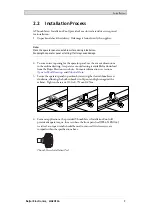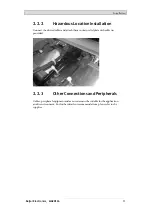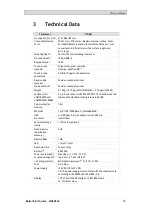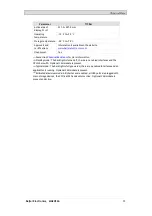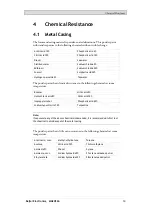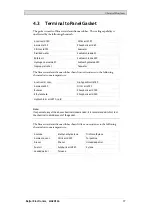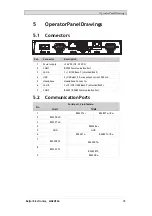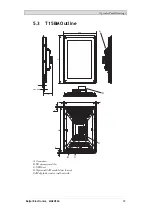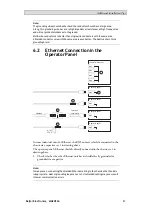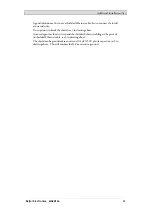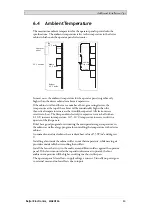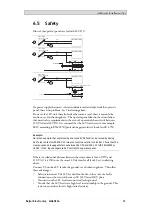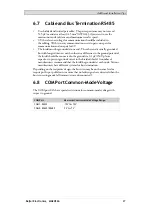
Additional Installation Tips
6.3 To Achieve Better EMC Protection
•
Use shielded cables for RS232 communication.
•
Use twisted pair and shielded cabling for RS422 and RS485.
•
Use the cabling intended for the bus type; Ethernet, Profibus, CC-Link,
CAN, Device Net etc.
•
Install and connect according to applicable specifications for the relevant bus
standard.
•
Use shielded cabling for Ethernet, preferably with foil and a braided shield.
•
D-sub covers should be shielded, and the shield should be connected to the
cover 360° where the cable enters.
•
Connect the shield at both ends.
Shielded cable
Not same potential
Ground plane 1
Ground plane 2
Ground plate
Ground plate in another building
0.1
μ
F/250 V
With longer distances, there is a risk that the ground potential may be different.
In that case, the shield should only be connected at one end. A good alternative
is to connect the other end of the shield to the ground via a 0.1 μF/250 V plastic
capacitor. Both ends are then connected to the ground in terms of HF, but only
connected to the ground at one end in terms of LF, thus avoiding the 50/60 Hz
grounding loops.
Metal cabinet
Metal cabinet
Terminal or connector
Terminal or connector
EMC cable gland
Plastic cable gland
Shielded cable
Short distance
Cable clamp
in steel
Shielded cable
1. Use an EMC cable gland or regular plastic cable gland, remove the outer jacket
and connect the shield to the installation plate with a 360° metal cable clamp.
2. Place the 24 V DC and communications cabling in one cable trunk/cable duct
and 230/380 V AC in another. If the cables need to be crossed, cross them at
90° only. Avoid combining the cabling for stronger 24 V DC outputs with
the communication cabling.
Ferrite cores that are snapped onto the shielded cabling may remove minor
disturbances. Large ferrite pieces that are snapped onto unshielded cabling and
where the wires go 2-4 times around the cores are approximately 5-25 times more
efficient.
Beijer Electronics, MAEN166
23

